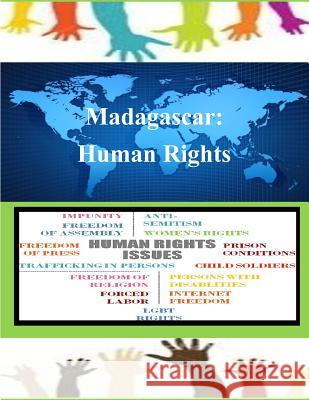Madagascar: Human Rights » książka
Madagascar: Human Rights
ISBN-13: 9781502855190 / Angielski / Miękka / 2014 / 34 str.
On October 25 and December 20, presidential and legislative elections were held for the first time since an unelected and illegal civilian regime headed by de facto president Andry Rajoelina assumed power in a 2009 coup with military support. By year's end, official election results had not yet been certified by the Special Electoral Court (CES) due to numerous legal challenges. The election was the culmination of a transitional process brokered by mediators acting on behalf of the Southern African Development Community (SADC), which led to the 2011 signing by political leaders of a "Roadmap for Ending the Crisis in Madagascar." De facto regime authorities did not maintain effective control over the security forces. Security forces committed human rights abuses. The most important human rights abuses included the inability of the transitional government to provide rule of law, which resulted in security force abuses, including unlawful killings, and mob violence. Other human rights problems included harsh and life-threatening prison conditions; lengthy pretrial detention; an inefficient judiciary that lacked independence; intimidation of journalists; restrictions on freedoms of speech, press, and assembly; official corruption and impunity; societal discrimination and violence against women, persons with disabilities, and the lesbian, gay, bisexual, and transgender (LGBT) community; trafficking of women and children; and child labor, including forced child labor. The de facto regime did not take steps to prosecute or punish officials who committed abuses and impunity remained a problem.
Zawartość książki może nie spełniać oczekiwań – reklamacje nie obejmują treści, która mogła nie być redakcyjnie ani merytorycznie opracowana.











